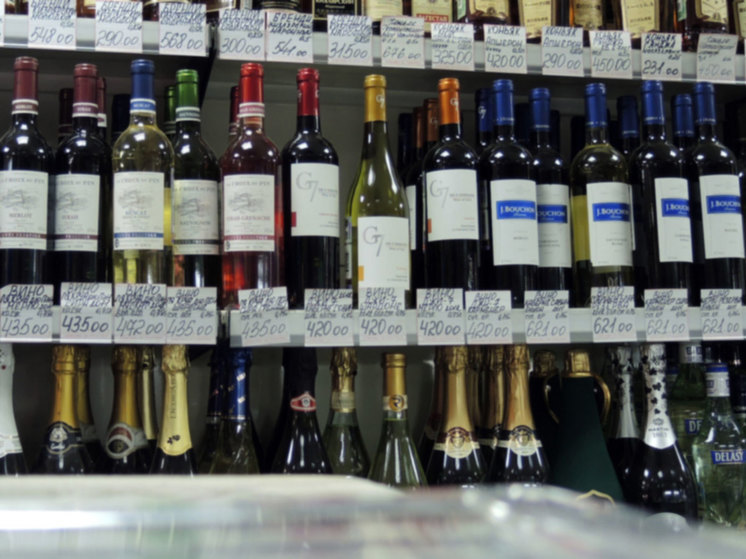Russian winemakers propose to ban sales of imported wine
[ad_1]

However, the effect in practice will be negative.
Russian winemakers came up with a truly revolutionary initiative, in the spirit of the present time. First, they proposed to the government to completely ban the import of wines from unfriendly countries. Secondly, to establish ultra-high, from 50%, duties on any foreign products. What is fraught with such a reformatting of the domestic wine market? First of all, problems for the average consumer – rising prices, narrowing the range, consumer hype regarding the remnants of imports in stores.
It is necessary to create conditions for the promotion of domestic wines, said Alexei Plotnikov, executive director of the Association of Winegrowers and Winemakers of Russia. Well, absolutely fair thesis. But I would like to ask: is it impossible to do without the artificial elimination of competitors from Europe and, say, Georgia? Peacefully coexist and work in any way will not work?
Imported wine on the Russian market is slightly less than half, 60% of this volume is produced by three European countries – Italy, Spain and France. The conjuncture is such that by the end of last year there was a record for six years of carryover of wine – about 160 million liters. Despite all the difficulties of 2022, unfriendly states increased supplies: Portugal – by 27%, Italy – by 19%, Spain – by 11%. According to the FCS, in January-December, distributors imported 405.1 million liters of wine (still, sparkling and fortified) into the country, which is 10% more than in 2021. According to Rosalkogolregulirovanie, the production of Russian wines also increased: sparkling – by 25.2%, still – by 9.7%. But sales are not growing so fast: sparkling wines were sold 8.6% more last year, still wines – only 0.8%.
“The domestic producer is in a dual position,” says Pavel Shapkin, head of the National Alcohol Policy Development Center. – On the one hand, the country does not have enough vineyards to meet domestic needs: we now have a little more than 100,000 hectares, but we need 250,000. And it will take at least ten years to prepare additional wine-growing zones. In terms of climatic and natural conditions, Russia is clearly not Italy: you cannot grow grapes in Tyumen, the Far East, Altai, they have already tried it. On the other hand, the industry enjoys the support of the state: subsidies are allocated for planting vineyards, the effective (after deduction) excise tax on Russian wine is 1 ruble per liter, which is 23 times less than on beer.”
But, in any case, the proposed measures will lead to an increase in the price of wines, including Russian ones. According to Shapkin, the maximum demand is observed in the niche of 300-500 rubles per bottle. With the introduction of a duty of 50%, prices will “fly away” by 700-1000 rubles for the same wine. And demand will begin to shift towards cheaper alcohol – cider, beer drinks, gin and tonics. Plus, restrictions can have the opposite effect: people will rush to buy imports at normal prices. This man-made hype will work against domestic winemakers: sales of their products will simply stop.
“The Russian market is not ready to replace imports in the volumes that come into the country,” said Vadim Drobiz, director of the Center for Research on the Federal and Regional Alcohol Market (CIFRRA). – Most likely, the government will not go to extreme measures and will choose the second scenario – an increase in duties. But even then we cannot avoid a significant rise in prices. Although old stocks will last at least until the New Year.
The thing is that wine from unfriendly countries (it is not clear whether Georgia belongs to them, with a very large volume of supplies) has its own audience – these are representatives of the middle class, mostly women. And with import restrictions, these people are unlikely to massively switch to Russian wine; rather, they will prefer alcohol-based cocktails. The main consequence is that the wine market in Russia will shrink.”
The motives of Russian winemakers are absolutely clear: it is always more convenient and profitable to work in the absence of competitors. Unfortunately, today the authorities are increasingly making economically unreasonable decisions under political “sauce”. The protection of free competition has ceased to be a priority for the government, and similar lobbying projects are being implemented in other industries, says Dmitry Yanin, chairman of the board of the International Confederation of Consumer Societies (ConfOP). In his opinion, rumors and talk about a ban on imports of wines from unfriendly countries alone can push merchants to increase prices for the current product. This will provoke a rush demand: people will overpay for products here and now. A negative effect on the healthcare system is also very likely, since some consumers will switch to strong alcohol.
[ad_2]
Source link






